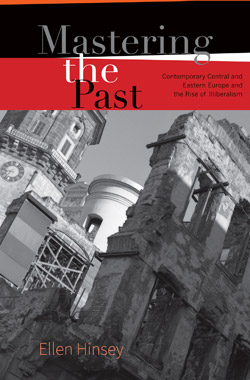Europe’s effectiveness in combatting terrorism has been diagnosed many times as being very low. There is increasing solid evidence about the devastating nature of global Islamist terrorism and its thousands of victims each month, from Nigeria to Southeast Asia and also, increasingly, in Europe. A recent survey by the French daily Le Monde revealed that in Europe alone, there have been 2,239 victims of terrorist attacks since 2001. Increasingly, global terrorism is not only a political problem; it also has become a global public health problem, despite certain tendencies among Western social scientists to portray global terrorism as a relatively rare phenomenon.
|
Although a frustrating incalculable for the engineers of government, religion must be acknowledged as that without which the techniques and technologies of human subjectivity would not exist. I am not here arguing for the adoption of certain religious practices or beliefs, but simply qualifying the centrality of the political by insisting on the necessity of the religious. I maintain that the asymmetry characteristic of all civilizations stems from ruptures that I describe as religious, or evental—terms that I maintain are equivalent. To probe the intricacies of asymmetrical warfare in the twenty-first century is to ask, “Whence and whither the Event?” Mastering the Past:
Constitutional Theory as Cultural Problem: The International Center for Critical Theory and the Telos-Paul Piccone Institute will jointly host a conference entitled “Constitutional Theory as Cultural Problem: Global Perspectives,” to be held at New York University, New York, from January 19–21, 2018. The challenges faced by the liberal democratic model in the 21st century have made constitutional theory into an urgent topic of global concern. Both the second Iraq War and the revolutions of the Arab Spring frustrated hopes of an easy trajectory toward liberal democratic constitutional orders. If there was the hope that liberation would mean the establishment of liberal democracy, the result has been that emancipation from tyranny does not naturally lead in a particular political direction. Such a conclusion presents fundamental problems for a constitutional theory that is built around a liberal democratic model. During his 2004 presidential campaign, John Kerry stated, “We have to get back to the place we were, where terrorists are not the focus of our lives, but they’re a nuisance.” Though this statement was widely lampooned on right-leaning American media outlets, it is worth examining: swimming pools, and choking on one’s food, are more deadly, all things being equal, than terrorism. Yet terrorism produces a “conceptual helplessness,” in which, “We seem to be left with no good choices. To call what happened on September 11 evil appeared to join forces with those whose simple, demonic conceptions of evil often deliberately obscure more insidious forms of it. Not to call the murders evil appeared to relativize them, to engage in forms of calculation that make them understandable—and risked a first step toward making them justifiable.” Ten characteristics of the patterns of ethnic conflict in Europe—the way they are reflected in media and culture. They serve as the key to conceptual understanding of the nature of confrontation, aggression in communication in the public sphere in Europe at present, and erosion of democratic values |
||||
|
Privacy Policy · Data Protection Copyright © 2026 Telos Press Publishing · All Rights Reserved |
||||



